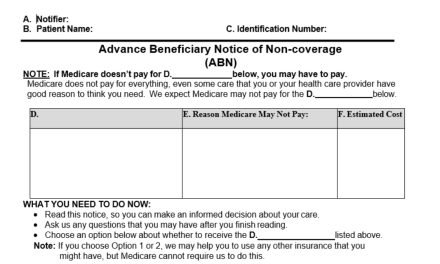
Patient Financial Hardship and Federal Law
Are you curious about the most effective ways to support patients experiencing financial hardship? Take a look at this video and discover practical and legal strategies to offer assistance.
Link for today’s video:
Transcription:
In a previous video, we were discussing Gifts and inducements and the problems with the anti-Kickback Statute and the Civil Monetary Penalties Act, and those issues with federal law that come into play when you’re trying to offer a gift or inducement or a coupon or whatever it may be for your Medicare patients or other federally funded programs. So it can be Medicare, Medicaid CHAMPUS, TRICARE, Veterans Association, or Veterans Administration, etc. All of those anything that’s a federally funded program falls under both the anti-Kickback Statute as well as the Civil Monetary Penalties act as well. Alright, so that’s really important.
But what happens in these financial hardship cases? How do you help your patients that are in financial need, and there are really some important caveats that you have to know, first and foremost, you actually have to make a good faith effort to actually determine that the individual is in financial need. Now, the Illinois chiropractic society strongly recommends that you actually have a written policy for this and that you actually collect information from the patient, a lot of experts will say to you, you have to collect ongoing tax returns, if you will, to demonstrate the financial need of a patient, we actually have provided in our Forms and Templates section, a financial need assistance form. So they can you can download that and have them actually fill out this financial hardship form, to help you make that determination and make sure that you’re applying it equally across the board.
So the question we get all the time is, do we really have to take that step? Do we really have to demonstrate, and yeah, according to the Civil Monetary Penalties Act, you do, you have to actually take the step to make a determination in good faith. And that’s really the key here, right? It has to be in good faith that the individual is in financial need. So you want to make sure that you do that. Now, the other thing is this you want to make sure that the person that you’re helping, and you’re giving those discounts to they’re in financial need, that you’re never tying them to a paid item or service, right. So for us, you never want to tie that to actually receiving the adjustment. Okay, so if there’s other care that they need, and that they’re provided that you don’t say, Well, I can give you the exam and the X-ray. Or we can substantially reduce that as long as we set up a treatment plan, where you’re going to get 10 adjustments, or whatever the case is, or whatever that may do, you never want to tie that financial need discount or assistance that you’re giving the patient, you never want to tie that to a paid service with Medicare, the moment you make that tie, then it no longer meets the safe harbors that are in place under the Civil Monetary Penalties act. Okay. And so that’s really, really important.
The other big key is this is you want to make sure that the item of service is not ever a part of any advertisement. So you don’t want to advertise. And remember, when we talk about marketing and advertising, it’s incredibly broad the way that you do it. So if you’re actually telling all of your patients in a broad sense, that that, that there are ways that you can waive their co-pays and deductibles if you don’t have a good faith reasonable belief that the patient is in financial need. But if you’re doing marketing, right, so anything on social media, any kind of print flyers, you have flyers in your, in your waiting room, any things along those lines that broadcast that you have this financial need, and can waive or reduce the cost of the services, then wouldn’t meet the safe harbor that’s been laid out in the Civil Monetary Penalties act, okay. So you want to make sure that you hit all of those high marks. And ultimately, also, you want to make sure that there’s a reasonable connection between the items and services. So that discount or the items that you’re providing those gifts if you will, are directly related to the medical care of the individual. And by the way, it can never be something that is money or like money. Okay, so those have been excluded from the safe safe harbor. So the exceptions for financial hardship can never involve any kind of financial remuneration. So it could be cash or check, a gift card or a gas card, or something along those lines. None of those could be provided it still meets the financial hardship exception. They’ve laid that out as an exception. Those are the big areas. There are several other caveats and that may or may not apply to you, but these cover the vast majority of them, make sure you stay within the guardrails that have been established by the Office of Inspector General and the safe harbors have been laid out and Civil Monetary Penalties act and hopefully this will help you out and we will catch you next week.



















